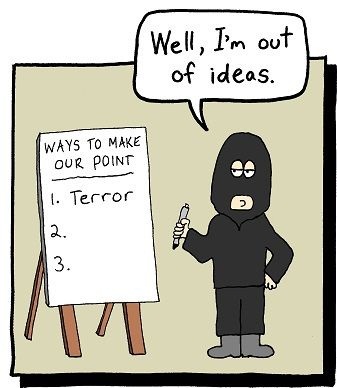Shortly after the Las Vegas shooter Stephen Paddock massacred 58 people week before last, I sent a message to some of my friends saying “all one hears is that the culprit is a ‘local’ (not a terrorist) and this actually says quite a lot”.
What the term a ‘local’ conveys is that the ‘culprit’ is a white person, most probably an American. It absolves him of the terror tag and the subsequent scrutiny.
Were his motives known? Was he found to be mentally ill? No, not yet. The FBI, one of the world’s leading investigation agencies, is still probing the incident.
Meanwhile, what is the Arab media up to? Papers in the Arab region generally echo what the news outlets in the West say. While Arabic divisions of global media like the BBC and France 24 covered the topic in some depth, the commentary and analysis in most of the Arab world was somewhat muted. It is a sad reflection of the lack of debate and comment in our part of the world.
Sadly, to the best of my knowledge, no Arab media took the initiative to analyse what happened, or discuss, from an Arab perspective. Questions of why the situation would have been different if Paddock had Arab roots, or converted to Islam or inspired by one of the terrorist organisations, were not raised.
By comparison, few years back, one Arab columnist wrote an op-ed after an attack in the United States, saying: “I hope the perpetrator is not from us.” This incident stayed etched in my memory because had that perpetrator been an Arab, we would have immediately put ourselves on the defensive, as if one single murderer or mentally-ill person represents nearly 400 million Arabs or more than 1.7 billion Muslims. Just like Paddock doesn’t represent all white Americans, a demented person, Muslim or otherwise, represents no one but himself.
“Terrorism is defined according to the identity of the doer, rather than the action itself,” said Amman-based Hassan Abu Haniya, an expert on extremists and terrorist groups. In the US alone, there are 15 definitions of terrorism, he explained. The definition of terrorism has evolved throughout history and today it has become more of a “self-construed and prejudiced concept, or in other words, the power and the authority of the state — any state for that matter — can define what is terrorism, and who is the terrorist”, Abu Haniya said.
Among the many reasons behind the difficulty in defining terrorism is the disagreement on the legality of a certain action by certain people against some others. One of the several definitions is the legal definition available in Merriam-Webster dictionary, which explains terrorism as “the unlawful use or threat of violence especially against the state or the public as a politically motivated means of attack or coercion”.
As an Arab and a Muslim, I do not understand how my religion has been hijacked by extremists and judged by non-Muslims as a religion linked to terrorism. Islam rejects violence outright, especially on non-combatants. To explain the western perspective in a few words, if the “attacker” is coloured, or of Arab origin or a Muslim, the theory of terrorism becomes the main one unless proven otherwise. Nevertheless, if the attacker is white, the angle of terrorism is looked into last — only after every other angle has been examined. The attacker might be described as mentally ill, or overwhelmed by social problems, or some such excuses.
Imagine reading news about a person entering a restaurant and starting a fight with another person. If the attacker is of an Arab origin or is a Muslim, he will immediately be dubbed a “terrorist”. Nevertheless, if the attacker is not Arab or a Muslim, we will hear something about financial, family, social or behavioural problems. Incredibly, not a single report has described Paddock as a terrorist. As investigations continue, some people are even praising Paddock as a person, saying they have not noticed anything wrong with him. This is a man who massacred innocent people and had a mini-ammunition depot at his possession.
It is interesting to read some of the American media reports. It is baffling to see how some have already initiated a discussion on who uses what kind of vocabulary and type of adjectives under different situations. Wish the Arab media reports had a deeper discussion on that.
During my days of working with the Arabic branch of the Voice of America, a government entity broadcasting to Arabs, choice of words was very important. We never used the word “martyr” for Arabs who were killed in fighting Israeli occupation, unless it was a direct quote from an Arab source. But at the same time, we never used the Israeli descriptions of saboteurs or terrorists, unless, also, it was a direct quote from and Israeli source.
Words have meanings. They leave impressions and help form a views.
This is where media can play an important role.








































admin in: How the Muslim Brotherhood betrayed Saudi Arabia?
Great article with insight ...
https://www.viagrapascherfr.com/achat-sildenafil-pfizer-tarif/ in: Cross-region cooperation between anti-terrorism agencies needed
Hello there, just became aware of your blog through Google, and found ...